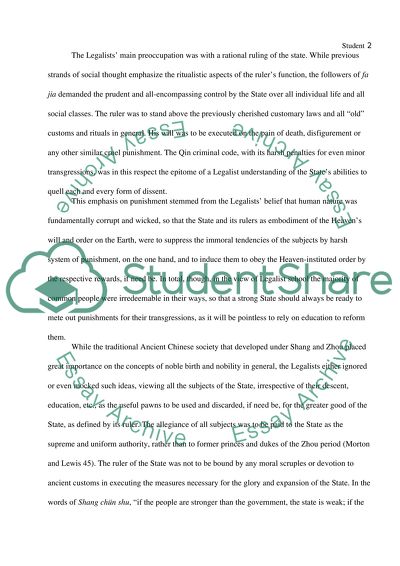Cite this document
(“The Fall of Qin: A Confucian Perspective Essay Example | Topics and Well Written Essays - 1500 words”, n.d.)
Retrieved from https://studentshare.org/history/1458166-the-fall-of-qin-a-confucian-perspective
Retrieved from https://studentshare.org/history/1458166-the-fall-of-qin-a-confucian-perspective
(The Fall of Qin: A Confucian Perspective Essay Example | Topics and Well Written Essays - 1500 Words)
https://studentshare.org/history/1458166-the-fall-of-qin-a-confucian-perspective.
https://studentshare.org/history/1458166-the-fall-of-qin-a-confucian-perspective.
“The Fall of Qin: A Confucian Perspective Essay Example | Topics and Well Written Essays - 1500 Words”, n.d. https://studentshare.org/history/1458166-the-fall-of-qin-a-confucian-perspective.


